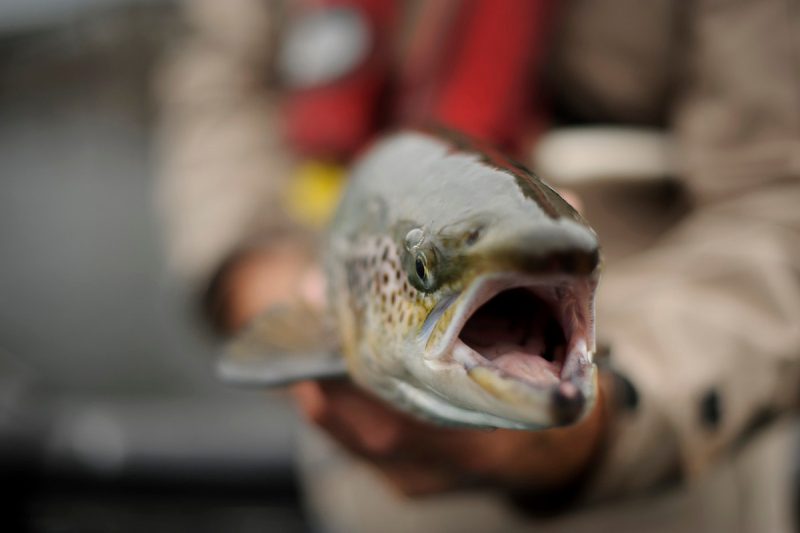NIMBY-ism in the Nova Scotia aquaculture debate
“The future of the salmon farming industry in Nova Scotia, whatever that may be, requires goodwill and communication between all stakeholders”
Commentary
By Brian Rogers
With backgrounds in both marine biology and business, I have been involved in the global aquaculture industry for the past 36 years, predominantly with salmon.
Lately, I’ve been watching both sides in the current Nova Scotia aquaculture debate vilify each other, with no apparent middle ground in sight. The Twin Bays Coalition, opposed to sea-cage farming, have opted to support the land-based farming company Sustainable Blue, while the Nova Scotia government is supporting industry growth of both sea-caged and land-based salmon farming.
Current information from both sides is confusing. I don’t recognize the “archaic” industry being described by The Twin Bays Coalition. And after listening to Fisheries and Aquaculture Minister Keith Colwell’s rambling interview, I thought he missed a valuable opportunity to address the concerns of Nova Scotians.
I have written this letter to provide some perspective on both marine and land-based salmon farming. These are two of the most technologically advanced food production systems in the world that differ in business models but have the same end result: profitable sales of fresh, high-quality salmon. And both need to be supported. So, I’m struggling with the either/or positioning of the debate.
The salmon sea-cage industry of 2020 looks nothing like the industry I entered in 1984. Feed, previously comprised mostly of fish meal and oil, is now 70 per cent plant-based. Vaccines have been produced to prevent fish diseases. Numerous non-medicinal sea lice treatments are available. Technology is being trialed that can harvest organic waste from below cage sites and produce a fertilizer similar to manure from cattle and sheep.
The federal/provincial regulatory regimens continue to evolve, where even the suspicion of a disease is required by law to be reported to the Canadian Food Inspection Agency. If treatment is an option, medication approved by Health Canada is administered under the supervision of a provincial veterinarian. Antibiotics are never used prophylactically. AI (artificial intelligence) is being used to predict sea lice outbreaks. Wireless underwater technology, invented in Nova Scotia and being used at salmon farms globally, allows environmental data to be monitored in real time to predict and manage environmental impacts, sea lice outbreaks, fish health and welfare, and the safety of employees and assets.
Regarding sailing and navigation concerns, Transport Canada issues a permit requiring each aquaculture site to maintain public right of navigation for both recreational and industrial users in the surrounding waters. This is not new and has been standard practice for the past 30 years.
The strong profitability experienced by the global sea-cage salmon industry has spurred on numerous land-based development opportunities around the world. There are multiple companies with the technological know-how to grow salmon on land in closed containment systems. However, economic viability has been a challenge. These new development designs require scale and location — very large facilities situated close to markets. Geographically, Nova Scotia will struggle to compete with this model. The scale of Sustainable Blue, farming on land in Nova Scotia for the past 13 years, and projecting 1,500 tonnes of production, positions the company as a niche market supplier.
The sea-cage farming model that companies globally, including those in Atlantic Canada, are developing, is a semi-land-based model. This model transfers salmon from the hatchery at five to 15 times larger than current practice, thereby reducing the time at sea (risks) from two winters to one.
The future of the salmon farming industry in Nova Scotia, whatever that may be, requires goodwill and communication between all stakeholders. However, if the real issue is NIMBY (Not In My Back Yard), neither science nor facts, nor the information presented in this letter, is likely to help resolve anything.
Brian Rogers, with backgrounds in both marine biology and business management, has been involved in both the traditional fishing and aquaculture industries for the past 40 years, including global aquaculture for 36 years, predominantly with salmon. He was briefly deputy minister of Fisheries, Aquaculture & Agriculture in Nova Scotia in 2014. This article was originally published in the The Telegram, A SaltWire Network Publication.
Image courtesy of the Atlantic Canada Fish Farmers Association.

